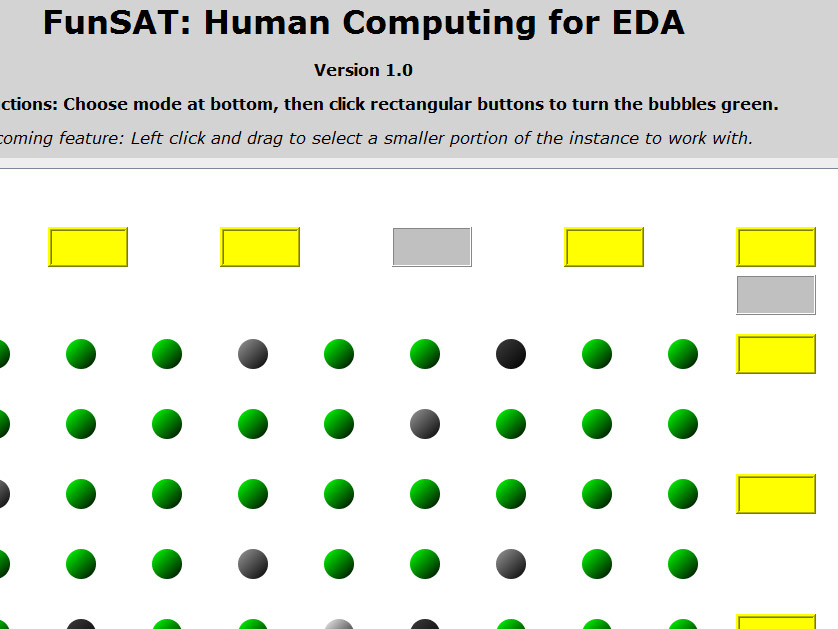Game your way to faster hardware
Human gamers beat computerised chip designers

Put the 'fun' into 'functional' with a new puzzle game that helps solve problems in next-generation chip design.
FunSAT is an online Sudoku-like puzzle that harness human powers of intuition to help develop faster processors.
Solutions to the game could help integrated circuit designers select and arrange transistors, and their connections, on silicon microchips.
Humans are still smarter than PCs
Designing chips for the best performance and smallest size is an exceedingly difficult task that's now outsourced to computers. However, computers simply flip through all possible arrangements in their search, without the pattern recognition skills that could yield a better arrangement.
So University of Michigan computer science researchers Valeria Bertacco and Andrew DeOrio created a game, FunSAT, to harness humans' abilities to strategise, visualise and understand complex systems.
The games board consists of rows and columns of green, red and gray bubbles in various sizes. Around the edge are buttons that players can turn yellow or blue with the click of a mouse. The buttons' colour determines the colour of bubbles on the board. The goal of the game is to use the buttons to turn all the bubbles green.
Sign up for breaking news, reviews, opinion, top tech deals, and more.
The game actually unravels so-called satisfiability problems - highly complicated mathematical questions that involve selecting the best arrangement of options.
"Computer games can be more than a fun diversion," said Bertacco, professor of computer science. "Humans are good at playing games and enjoy dedicating time to it. We hope that we can use their strengths to improve chip designs, databases and even robotics."
You can try a prototype of the game - and possibly contribute to the next wave of super-computers, at http://funsat.eecs.umich.edu/.